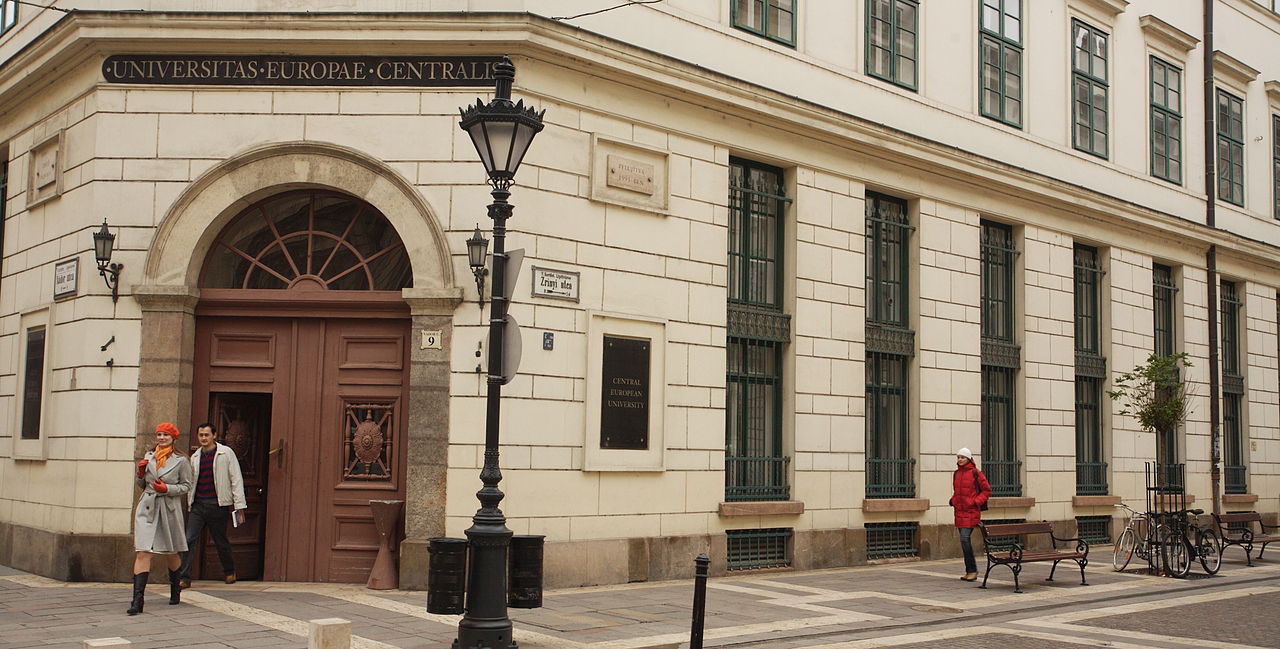When the Central European University (CEU) first faced slight pressure from Viktor Orban during the early 2000s, its role as a trusted and valued institution of higher education in Hungary won out, resulting in a 2004 agreement that served as a legal underpinning for the schools existence. Now, nine years into Orban’s second and stronger stint as prime minister, the University has found itself unable to weather the storm of criticism and legal restraints which threaten its academic independence. The current semester of studies will be the last in Budapest for the vast majority of the graduate-level school’s 1,400 students.
After failing to reach a deal with Orban’s ruling, the school’s current rector, Michael Ignatieff, announced in December that the school would be moving the overwhelming majority of its operations a hundred miles up the Danube to Vienna. In the months prior, Orban-driven policies had targeted the current agreements that mediate the school’s existence in an attempt to crack down on the school’s freedom to operate without direct input and oversight from the Hungarian government. In light of rising authoritarian sentiment across Europe, the CEU’s relocation serves as a pragmatic model that other embattled institutions should increasingly consider.
The CEU, founded by philanthropist George Soros in 1991 after the fall of Communism, has continuously operated as one of Budapest’s most prestigious and most internationally-minded universities. Buoyed by anti-Semitism and anti-global tendencies, as well as the university’s association with the often-targeted Soros, Orban’s government and its supporters have increasingly criticized the CEU. Furthermore, the international and left-leaning student-faculty body increasingly represents an obstacle to Orban’s attempts to deepen and defend Hungarian nationhood. Particularly during the present crackdown on immigration and shift towards Euroscepticism, the presence of a large and diverse group of intellectuals choosing curricula without input from the government, and often participating in anti-Orban coalition building is a clear threat to Fidesz.
The hour is far later than Europe and the world have realized. The actions of the Hungarian government towards the CEU suggest a society far along the path toward authoritarianism. The failure of the to defend an American institution abroad indicates a resurgent tolerance for far-right nationalism and illiberalism. It is hard to argue now that Hungary and Orban are dipping their toes into the possibility of aggressive control over civil society; this move signifies that they are already neck deep. This is not to say that world media and academic institutions, as well as many facets of the Hungarian population, are not attuned to Fidesz’s drive away from democracy; they most certainly are. Though Fidesz’s popularity waned after initial actions against the CEU, more recent data on the upcoming 2022 election shows the far-right firmly in control. The forced abdication of one of the city’s most prestigious universities should shift the ‘timeline’ of illiberalization several rungs past its current point.
If broader concern for the state of Hungary is absent, or at least lagging, criticism for the CEU’s decision to move appears ready at hand. It seems reasonable to bemoan the decision to ‘run away’ when faced with some adversity. The narrative is easy to complete for societies already skeptical of certain liberal institutions, painting a picture of weakness and ineffectiveness.
The Central European University has not been cowardly, weak, or ineffective. Instead, it has provided a model of resistance and wisdom for other Eastern European institutions that have faced, and will continue to face, threats to their existence and autonomy from rising illiberalism. Without adequate crisis planning and the development of a cohesive book of strategy and tactics, the opponents of far-right nationalist governments will not be able to resist effectively. Although maintaining a physical campus is not the only way to prevent a state-based takeover, and more complicated ways of coexisting with the status-quo are certainly possible, the decision to move and continue operating as a university with a campus is the ‘Ockham’s Razor’ solution. From a practical viewpoint, the opening of a campus in Vienna allows for the later possibility to re-enter Budapest, as the existence of a home campus in another EU country would help the CEU avoid many of the current Orbanist policies (at least in their current language). In St Petersburg, a similar graduate university has been without any active scholarly programs for two years, since Putin’s government took away its teaching license. That school was unprepared for doomsday, and they have since withered. While their campus rests in St. Petersburg, they cannot fulfill the role of an educational institution nor criticize or shed light on power abuse within Russia.
From Vienna, the CEU will be able to dissent and educate freely. Programs in gender studies and ethnic studies will no longer be threatened. Staff and students will be able to investigate and criticize not only Orban, but also Putin, Kaczynski, Trump, and other far-right authoritarians. This is a tactical withdrawal that keeps the power of academia at full brightness and leaves the door open for future resistance. Other institutions in the region, educational or otherwise, would do well to take the CEU as an example, and begin pouring thought into contingency plans in the face of reinvigorated Eastern European nationalism.
Photo: “Central European University“
